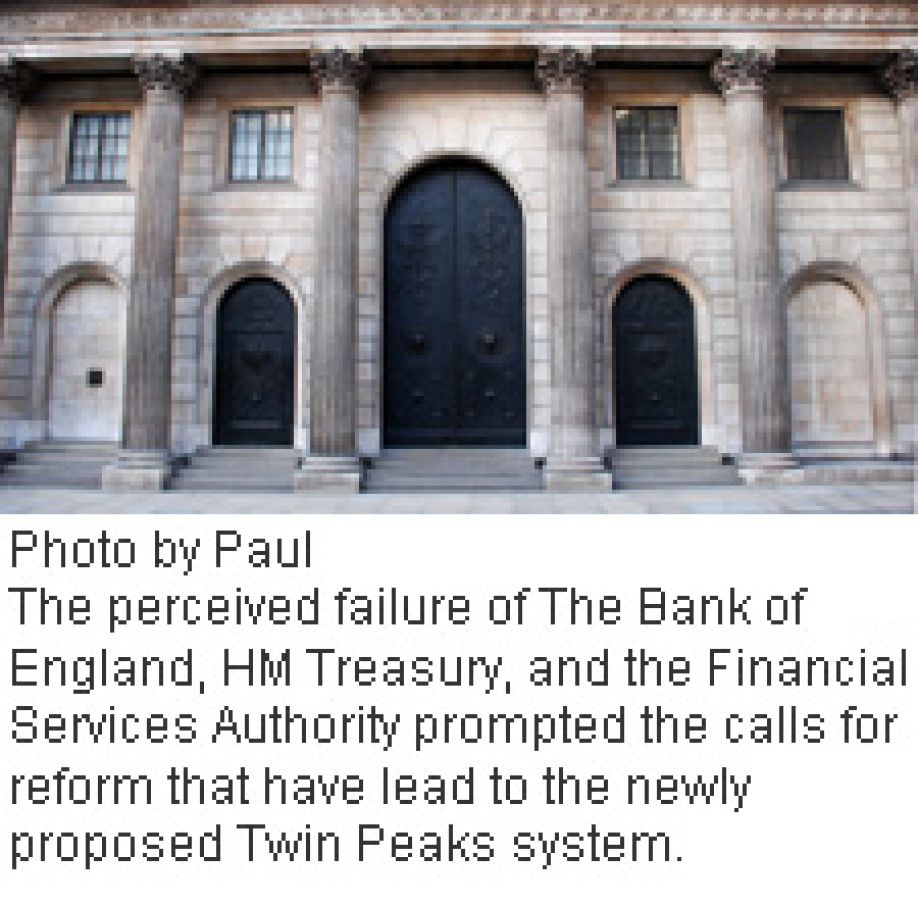Institutions that have significant financial risk, such as banks and insurers, will be dual-regulated by the PRA and the FCA. This is known as the win peaks model. The PRA will promote the safety and soundness of PRA authorized firms and ensure they carry their business properly and do not damage the financial system. The FCA will regulate personal investment firms, insurance companies and mortgage firms. The FCA will be act to ensure that risks do not materialize.
Financial firms in the UK have many concerns about the new Twin Peaks model. Potentially dual-regulated firms are concerned that having two regulators will cause duplication. Although the two regulators are supposed to work together, there is risk that there will be much overlap. In a speech on February 7, Hector Sants, Chief Executive of the FSA, said that financial firms in the UK would face more uncertainty, as they will require greater resources, expertise and cost than under the old model. Firms will have to look through the eyes of the regulators to help them understand how they can comply with the rules.
During the speech, Sants also made it clear that Europe will be increasing its influence in the world because of this new system. He said that in respect to prudential regulations in Europe, specifically the European Supervisory Authorities would make the rules in Europe. he UK is becoming a supervisory arm of Europe. But of course, reform also depends on the progress being made globally on the bank capital and liquidity reform said Sants.
There are skeptics who worry that these new arrangements will be a new burden and expense to financial firms, who will have to take significant measures to comply with them. William Yonge, a partner at Morgan, Lewis & Bocklus, a major international law firm that aids businesses in adapting to new regulatory structures, told Asia Outbound, egulated financial firms, particularly those dually regulated by the UKPrudential Regulation Authority and the Financial Conduct Authority, will have to adjust and will need to dedicate adequate resources to reporting to two regulators - each with its own agenda - and to satisfying the demands of judgment-based supervision focusing on the spirit, not the letter, of regulation. /p>
But the regulation comes at a time when the UK government has been severely criticized for its performance during the 2008 worldwide economic crisis, which has led the government to experiment with new systems. Yonge said, he handling of the crisis in the UK by HM Treasury, the Bank of England and the Financial Services Authority (the ripartite Authorities was heavily criticized. In particular, there was a perceived failure to provide clear, decisive leadership and a concentration of prudential, conduct and market regulation in the FSA. The Coalition Government has certainly chosen to go onto the front foot, first identifying the failure of the tripartite system, singling out the FSA for particular criticism and abolition and driving legislative reform by way of remedy. /p>
















